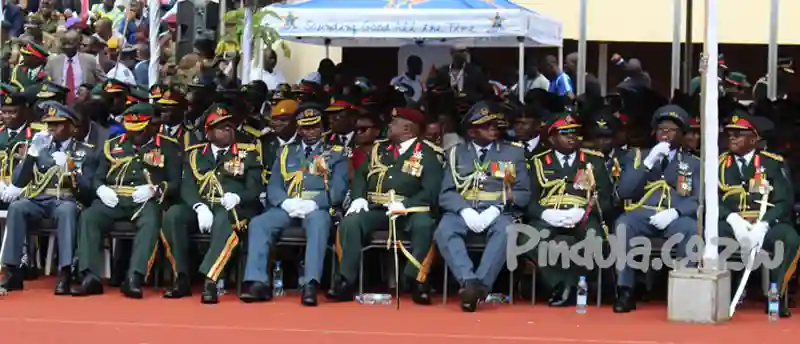The United Kingdom has announced its first autonomous sanctions on Zimbabwe since leaving the European Union.
It has imposed a travel ban and asset freeze on state security minister Owen Ncube, CIO boss Isaac Moyo, police chief Godwin Matanga and former presidential guard commander Anselem Sanyatwe.
They are held responsible by the UK Government for a state-sponsored crackdown against protests, including in January 2019 which resulted in the deaths of 17 Zimbabweans, as well as post-election violence in August 2018 in which six protesters lost their lives.
UK’s Foreign Secretary, Dominic Raab, said:
These sanctions send a clear message that we will hold to account those responsible for the most egregious human rights violations, including the deaths of innocent Zimbabweans.
We will continue to press for the necessary political and economic reforms that will benefit all Zimbabweans.
This came into effect on December 31 when the Brexit transition period came to an end, and comprises trade restrictions on military goods and items that could be used for internal repression, as well as travel bans and asset freezes.
The first raft of designations today is part of a UK push to hold the Harare regime to account and follow through on its pledge to deliver reforms.
According to the Foreign, Commonwealth and Development Office (FCDO), Britain is demanding that the Mnangagwa regime respect democratic principles and institutions, stop the repression of civil society, and comply with international human rights law. The FCDO said:
We will continue to support the Zimbabwean people through our aid programme, focusing on tackling poverty, humanitarian assistance, standing up for human rights and supporting Zimbabwe’s recovery from the COVID-19 pandemic. None of this aid goes directly through Government or Zimbabwe systems.
Britain and her allies initially imposed sanctions on Zimbabwe at the turn of the millennium when the Robert Mugabe regime embarked on the chaotic land reform program during which many white farmers lost their land.
Zimbabwe attributes the country’s economic, humanitarian and political crises to these “illegal” sanctions.
British diplomats, however, dismiss these claims saying it is Zimbabwe’s poorly-managed currency and human rights abuses and the legal system that discourage the inward flow of cash.
More: Telegraph

